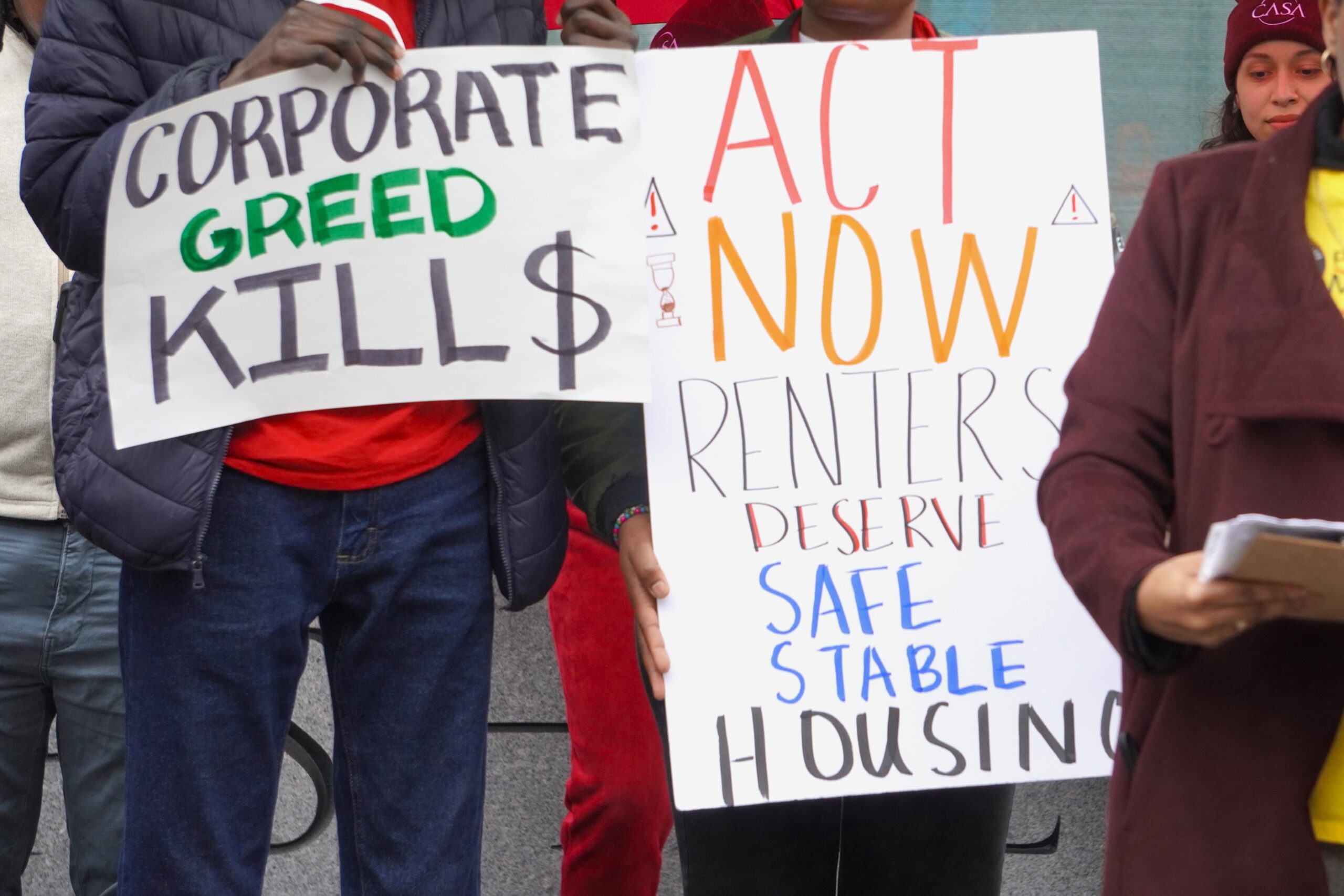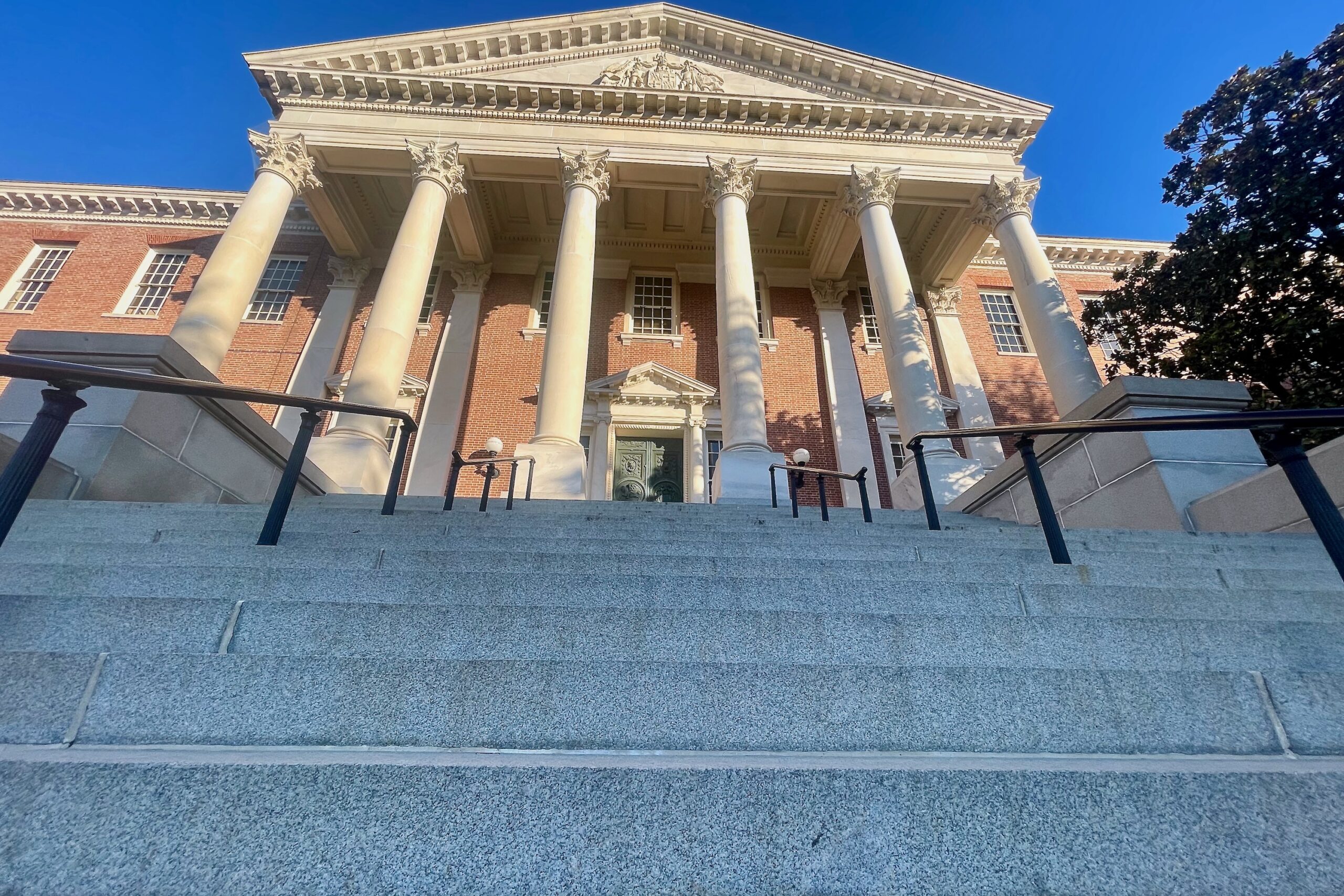Advocates declare ‘unprecedented’ progress for renter protections but there’s still work to do

Maryland’s renter population was at the center of several bills during the 2024 session, with even Gov. Wes Moore (D) trying to boost protections and opportunities for thousands of households who pay rent to live in their homes.
The 2024 session yielded a mixed bag of outcomes on renter-focused bills, as some measures were approved by both chambers and are in the process of being signed into law, while others were watered down or stalled in committees.
But advocates say that even the unsuccessful bills got the conversation going and set up tenants for more success in future sessions and legislation.
“The state made significant progress on housing justice and justice for Maryland’s renting families. Which is really exciting,” said Matt Hill, an attorney and team leader for the Human Right to Housing Project out of the Public Justice Center. The Public Justice Center is part of the Renters United Maryland coalition, which advocated for several renter-focused bills throughout session
“But, we’ve got a long way to go,” he said.
Here’s a run-down on some of the highs and lows of renter-focused bills from the 2024 session, including how they might help tenants secure more stable housing.
Tenant Safety Act
Tenants and renter advocates are happy with passage of House Bill 1117, the Tenants Safety Act of 2024, which makes the rent “escrow process” more accessible to tenants when landlords do not adequately address uninhabitable conditions at their property or make repairs. The bill enables multiple tenants to file a complaint with the local district court and put rent payments in escrow while the complaint is adjudicated.
Del. Vaughn Stewart (D-Montgomery) sponsored the bill and Moore recently signed the measure into law.
Hill said the protections were long needed.
“One tenant doesn’t have a lot of leverage to require the landlord to make necessary repairs.” he said. “Some landlords drag their feet and hope they can wait it out and their tenant will just go away or decide to move. Then they can maintain a business model where they can extract the highest amount of rent without investing in their property.”
Hill said the bill lets tenants in a building or apartment complex operate “as a union” instead of having to file complaints individually.
“How do we flip the script?…Well, one of the ways is to allow tenants in the same building with the similar issues to come together,” he added.
Another success for Renters United Maryland came out of SB 370 and HB 428, which allow the governor to allocate $10 million to help provide rental assistance, including $5 million for low-income families who have children enrolled in community schools and might be facing eviction. The funds would be used to help those families pay overdue rent or utility bills when they fall on hard times.
Stewart led the bill in the House, with Sen. Shelly Hettleman (D-Baltimore County) sponsoring the measure in the Senate. Moore has also signed this legislation.
“We know that housing affects everything. It’s foundation for a stable life, particularly for families with kids, so you can stay in stay in the same school and maintain that education,” Hill said.
But the Renters United Maryland group was disappointed that some of their priority bills didn’t make it across the finish line.
One bill that failed would have created procedures to better ensure that renters who are facing eviction do not also lose their belongings in the process, as some landlords may lock a tenant’s possessions inside the property or place them out on the street. But neither version of the bill, HB 1114 or SB 992, received a committee vote in its chamber.
“It’s just about basic dignity. Don’t take people’s possessions when you’re already taking their home. I think Maryland can do a lot better,” Hill said.
Renters Rights and Stabilization act watered down
HB 693, the Renters Rights and Stabilization act was priority legislation from Moore’s housing package, and he recently signed it into law.
While most bills in Moore’s housing legislation bundle focused on improving the supply of affordable housing, HB 693 attempted to help tenants know their rights as renters by creating an Office of Tenants and Landlord Affairs in state government.
Part of the bill gives renters what’s called the Right of First Refusal, meaning that if a landlord decides to sell the property, the tenants living there will get the chance to purchase it before outside parties can.
Moore pitched the Right of First Refusal as an opportunity for tenants to become homeowners. However, activists are not sure how often a renter will be able to afford to buy the home they have rented, if the opportunity arises.
“In principle, we support the idea of the right of first refusal by the tenants, provided that there is an accessway for them to actually do it…Whether or not it’s a realistic pathway, I’m not sure,” said Matt Losak, executive director for the Montgomery County Renters Alliance.
The bill also raises, from $8 to $43, the fee to file an eviction notice on renters who do not pay their rent on time. It’s an attempt to reduce the use of the court system as a “collections agency” Losak said.
“It might, for some landlords, chill the idea of using the courts as a collections agency. Increasing the fee might have some value in slowing the serial filing. However, raising the fee to $43 is not strong enough to deter many landlords,” he said.
An amendment, added on the Senate floor, permits the landlord to take the eviction filing fee out of the tenants’ security deposit if the judge does not side with the tenant, much to the disappointment of renter advocates.
“I don’t think that’s what the purpose of a security deposit actually is. It’s supposed to cover damage caused by the tenant or a last month rent if necessary,” Losak said. “It goes to the larger issue of a tenant being responsible for a court filing fee if there is a judgement against them.”
‘Good Cause’ eviction bill fizzles out
One of the more significant renter protection bills, HB 477, would have allowed local jurisdictions to require that landlords issue a reason when they choose not to renew a tenant’s lease.
While the bill gathered a lot of momentum in the House of Delegates, it sputtered out in the final weeks when the Senate Judicial Proceedings Committee decided to not to vote on it.
“Without Just Cause protection, tenants pursuing the rights and benefits these bills offer are even more vulnerable than ever,” Losak said. “If you pursue maintenance or abuse or whatever that the Tenant Safety Act enables tenants to pursue collectively, they could all still be evicted through tenant holding over, which enables the landlord simply to evict without having to justify the reason.”
The bill listed reasons a landlord could cite when choosing not to renew a tenant’s lease, including that the tenant breached the lease. Among the reasons allowed, and that the landlord would be able to cite, for not renewing the lease are recovering the property for sale or use by a loved one, taking it off of the renters’ market entirely.
Del. Jheanelle K. Wilkins (D-Montgomery) was the lead sponsor of the bill in the House. Similar bills were filed in previous sessions, but the House of Delegates brought the legislation to a full vote this year, resulting in a 96-37 vote on the House floor.
Renters’ rights advocates were invigorated by the House vote.
“This is unprecedented and historic,” Losak said about the Good Cause legislation’s progress in the House.
The bill went to the Senate for consideration, where it had an emotional hearing in the Judicial Proceedings Committee. But Chair William C. Smith (D-Montgomery) did not bring the legislation to a vote, leaving it to languish as the clock ran out in the 2024 session.
Smith did not respond to multiple requests for comment.
Overall, tenant advocates are pleased with advances made in the 2024 session on legislation and the conversations sparked about renter protections in the state.
“We’ve been doing this a long time… This was real progress,” Losak said.
But Losak said that without the protections from Good Cause evictions bill, other renter protection efforts lose teeth because the ability to evict tenants without a reason creates a “tremendous chilling effect” on renters.
“But for the tenant who is facing eviction this month…having committed no crime, being up to date with their rent, with pursuing promised and required services and being retaliated against for doing that… all the progress of the Maryland General Assembly has failed them this year,” he said.
Hill with Renters United Maryland expressed a similar concern.
“There’s a lot of attention on developing new housing, and that is important, but if we allow landlords into that equation, and developers, without more meaningful protections for renters, we’re not going to change the fundamental imbalance that keeps people constantly wondering whether they are going to be facing evictions,” he said.




 Creative Commons Attribution
Creative Commons Attribution